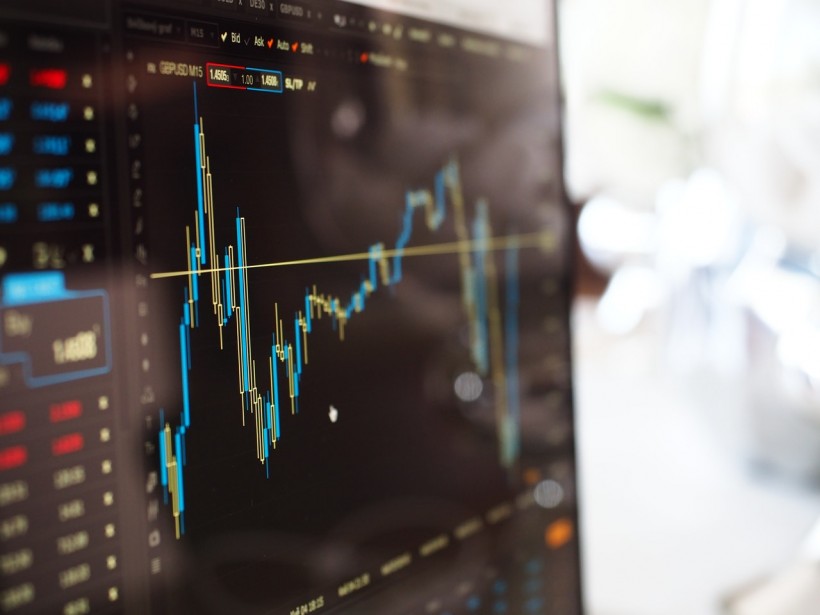Throughout her life, Macrina Kgil has been faced with adversity, from being a Korean expat living in Australia to her current role as an Asian female executive for one of the world's largest blockchain companies.
Throughout her life, Kgil has worked hard to open doors and establish a diverse perspective in the world of high-end finance. As the Chief Financial Officer of Blockchain.com, Kgil leverages opportunities to influence the traditionally male-dominated industry of finance and technology.
Early Beginnings in Australia
Kgil grew up in South Korea but spent five years in the mid-1980s living in Australia. It was during her time in Sydney that she learned how to speak English, but also felt as if she was under a microscope.
"When I was in Australia at that time, I was the only Asian kid, I think, in the whole school for about two years," she said in a recent interview. "And so you actually go through being the monkey in the zoo for a long time."
She also learned cross-cultural tolerance and resilience. Kgil said people were fascinated with her Korean culture and often asked her to teach them the Korean language.
Kgil's cumulative experience helped her quickly advance in her professional career to her current position at the financial helm of Blockchain.com.
A Career Shift from Engineering to Finance
Macrina Kgil graduated from Seoul National University with a major in petroleum engineering. However, she eventually discovered that she wanted to work in finance and made the lateral shift.
She started working for PricewaterhouseCoopers (PwC) in Seoul, helping South Korean companies with audits and accounting issues and managing initial public offerings (IPOs) in the United States.
Kgil's work took her to New York City and she soon relocated to the United States, working for PwC's global capital markets group. She began to navigate the complex world of finance in New York, which was quite different from the top-down Asian approach to business.
"Here, you have to raise your hand and your voice, whatever your opinion is, and go through the process, which I thought was very fascinating. And that took a few years for me to understand," she said.
The Power of Mentors and Influence
It was at PwC that Macrina Kgil found a mentor who encouraged her to leave the company and helped place her at Fortress Investment Group, where she was an in-house advisor on matters relating to its private equity business. Her mentor at Fortress was a sounding board for Kgil and encouraged her to make her next move to Springleaf Financial Services.
At Springleaf, Kgil was a group controller and was soon after promoted to Chief Financial Officer. Kgil took Springleaf public as its Chief Financial Officer and was instrumental in its acquisition of a subsidiary of Citigroup business, OneMain Financial.
Kgil said that she has been fortunate to work for organizations and with colleagues where workers are not judged based on their gender and race. She recalls a time at Fortress Investment Group when an investor remarked at the number of female directors and partners in the firm's private equity group. At the time, she estimates thirty percent of the employees were women and many of them were minorities.
"I never really had the sense of, 'Hey, I'm a minority female in the Wall Street world.' I was lucky enough to be at Fortress where it was a lot more diverse. So, it was a pretty good experience for me, seeing a lot of Asian females being very successful."
Macrina Kgil continues to lead in a company that is also committed to diversity, and Blockchain.com has a workforce that is about thirty percent women. She's also said that at many companies, people like to hire people who look like themselves. At Blockchain.com that is not the case. Kgil praises the company's "across the board" commitment to having a diverse workforce.
It's a practice she follows herself.
"I don't put that label 'female' or 'male' or 'diversity' in my head when I interview different people," she said. "And I think that's really important."
* This is a contributed article and this content does not necessarily represent the views of sciencetimes.com













![Sat-Nav in Space: Best Route Between Two Worlds Calculated Using 'Knot Theory' [Study]](https://1721181113.rsc.cdn77.org/data/thumbs/full/53194/258/146/50/40/sat-nav-in-space-best-route-between-two-worlds-calculated-using-knot-theory-study.png)

